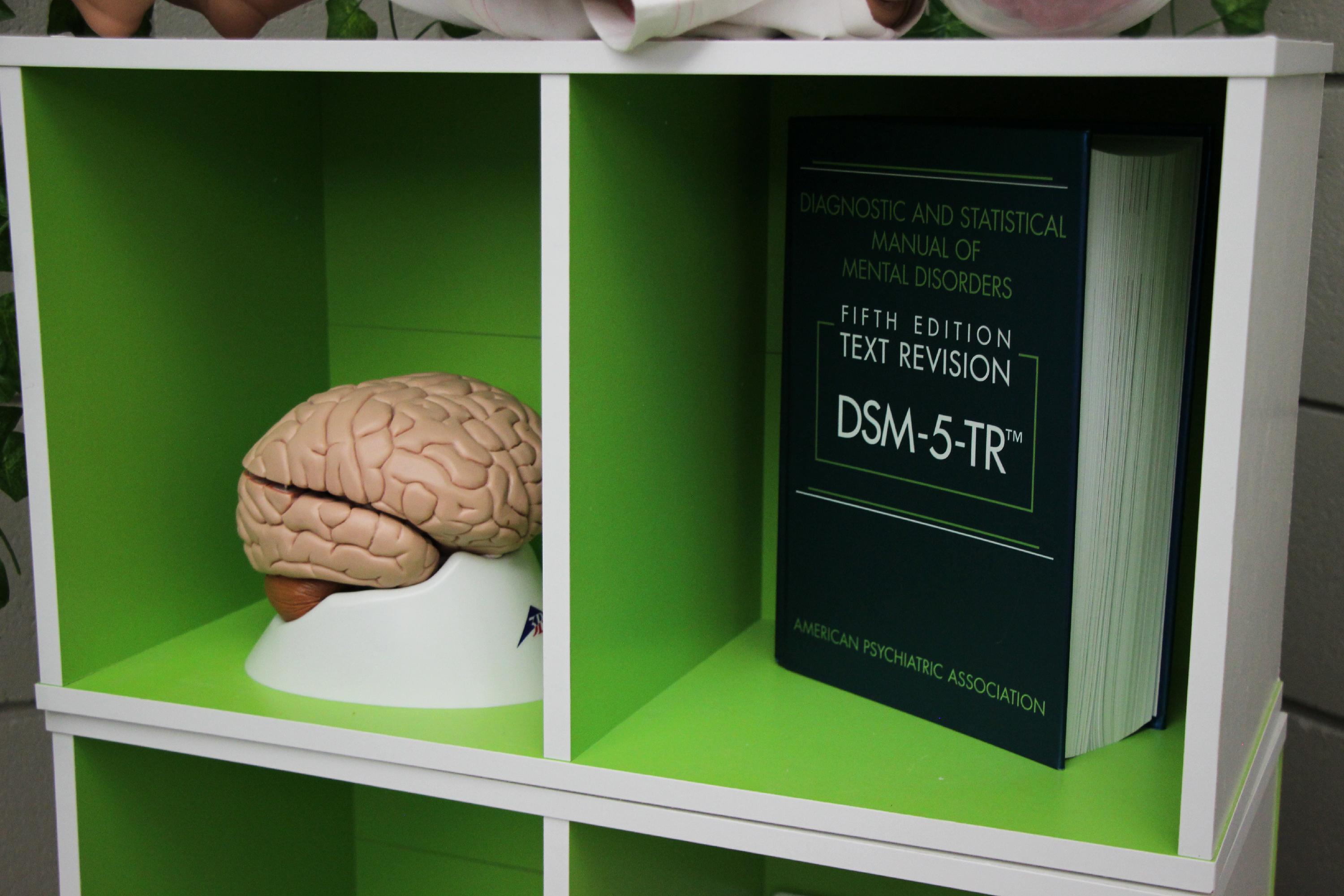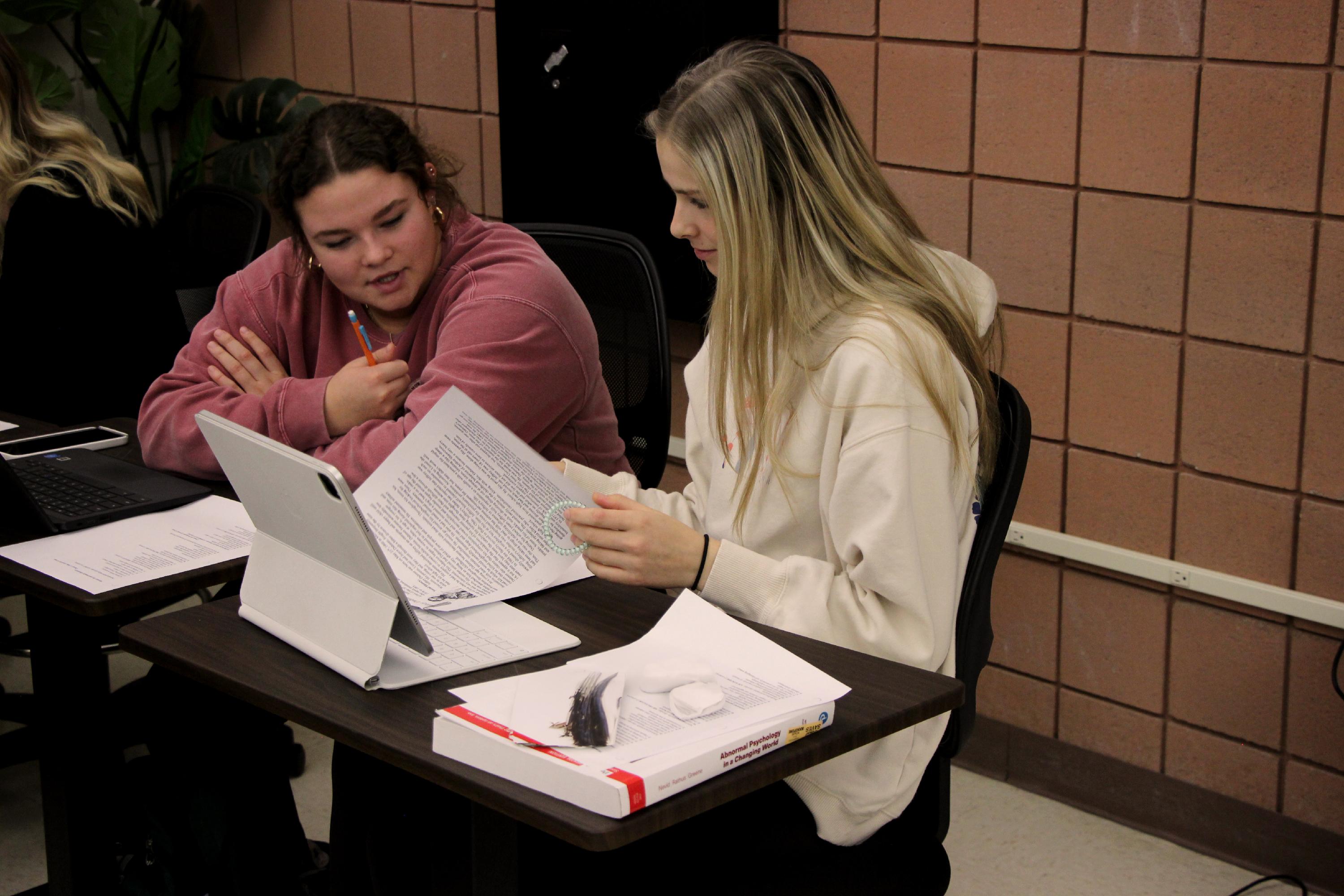Discover the World of the Mind
Psychology is the study of the mind—how we think, feel, and interact with the world around us. As a psychology major, you’ll explore cognitive, emotional, and social processes and behavior. You will learn to observe, interpret, and record how people relate to one another and their environments. Discover the mysteries of the human mind, make a difference, and find a rewarding career in psychology at Alpena Community College.
What is Psychology?
In the field of psychology, students delve into the intricacies of psychological theories and research methods. This broad discipline covers topics like biology, learning, perception, memory, emotion, and much more. As you study psychology, you’ll develop a solid foundation in understanding how people function.
What do Psychologists do?
Psychologists study cognitive, emotional, and social processes and behavior by observing, interpreting, and recording how individuals relate to one another and to their environments.
Psychologists typically do the following:
- Conduct scientific studies of behavior and brain function
- Observe, interview, and survey individuals
- Identify psychological, emotional, behavioral, or organizational issues and diagnose disorders
- Research and identify behavioral or emotional patterns
- Test for patterns that will help them better understand and predict behavior
- Discuss the treatment of problems with clients
- Write articles, research papers, and reports to share findings and educate others
- Supervise interns, clinicians, and counseling professionals
Preparation
Before starting, your academic background, assessment scores, or testing results are reviewed to determine the right courses for you to take. Review classes are also available to prepare you to meet the academic requirements of your program of study.
 Education and Licensure
Education and Licensure
Depending on the specialty area you choose in Psychology, you may need to pursue advanced degrees (Master’s or Doctoral Degree). Licensure and supervision by a licensed Psychologist for a period of time may also be needed.
A Bachelor’s Degree in Psychology is a great starting point, enabling you to assist psychologists and other professionals. Many graduates also find employment in areas such as sales, service, or business management.
Career Options
Psychology is a dynamic and evolving field, offering many opportunities. Overall employment of psychologists is expected to grow by 6% from 2022 to 2032, faster than the average for all occupations. Psychology is a growing field, with nearly 13,000 openings projected each year over the next decade.
Employment of clinical, counseling, and school psychologists is projected to grow due to demand for services in schools, hospitals, mental health centers, and social service agencies. The demand for psychologists will increase as more people turn to psychologists for help with their problems.
Employment of school psychologists will continue to grow because of an increased awareness of the connection between mental health and learning.
Organizations will continue to employ industrial–organizational psychologists to help with tasks such as selecting and retaining employees, implementing trainings, and improving office morale.
Salary and Benefits
Your average salary depends on the size, type, status (private vs. public), and location of your employer, as well as your skill and experience level. The median annual earnings of psychologists were $85,330 in 2022. Government psychologists typically have the highest median annual wages, while those working in private practice have more control over their own schedules.
* Bureau of Labor Statistics, U.S. Department of Labor, Occupational Outlook Handbook, on the Internet at http://www.bls.gov/ooh (visited Jan. 17, 2024).

